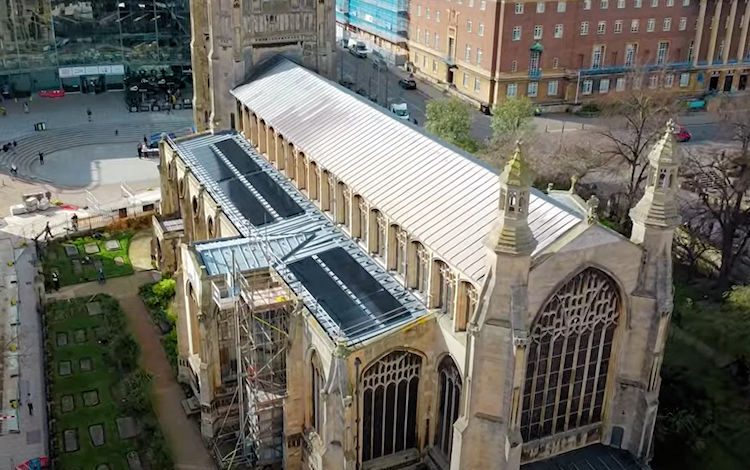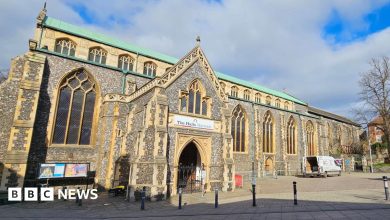Norwich church leads national Net Zero project

St Peter Mancroft, a historic church in Norwich, has received funding for net zero projects as part of the Demonstrator Churches project from the Church of England’s Net Zero Programme. This initiative will help over 100 churches pay for items such as solar panels, heat pumps, insulation, LED lighting, and more. The goal is for these churches to share their experiences and findings with others so that all Church of England churches can benefit from their knowledge. St Peter Mancroft, located in Norwich’s marketplace, has received a grant to reduce its carbon footprint by installing solar panels, heat pumps, LED lighting, and batteries.
The project at St Peter Mancroft began in 2017 when it was determined that the church’s lighting needed updating. The current sodium lights are being replaced with more energy-efficient LED lighting. The project was expedited when one of the gas boilers failed, prompting the church to take on a major environmental project. The Rev Canon Edward Carter has been instrumental in spearheading this initiative, which includes the installation of solar panels, LED lighting, heat pumps, and batteries. The church hopes that their project will inspire and encourage other churches to pursue similar environmentally friendly initiatives.
The Net Zero Demonstrator Churches Project aims to reduce carbon emissions by over 6,600 tonnes by 2030, focusing on high-emitting churches across the UK. The project is part of the Church of England’s wider Net Zero Carbon Programme, which aims to help all parts of the Church reduce carbon emissions by 2030. Each church participating in the project will act as a champion, sharing their experiences and lessons learned with other churches in their dioceses or geographically nearby. The ultimate goal is to demonstrate that churches from diverse settings can achieve net zero carbon emissions with the right support and infrastructure.
Abi Hiscock, Project and Grants Manager for the Demonstrator Churches project, emphasizes the importance of each church assessing their individual needs and implementing appropriate solutions to reduce carbon emissions. While solar panels are beneficial, there are also smaller, cheaper interventions that can be effective. The project’s goal is to create over 100 case studies on how churches can reach net zero carbon emissions by 2030, offering valuable insights and guidance for others. Through this project, the Church of England aims to equip churches with the tools and resources needed to achieve their net zero carbon goals.








